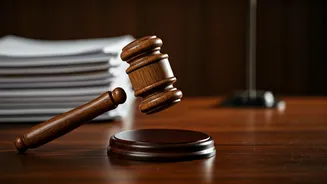Court's Stance Clarified
The High Court's refusal to dismiss the FIR signifies its firm stance on the matter. The slogan in question, 'sar tan se juda,' carries a significant weight,
often associated with a controversial and contentious context. The court's decision suggests that it believes there's a valid case to be examined or investigated further, based on the preliminary evidence presented. The legal system will likely continue its proceedings to determine the case's final outcome, assessing the facts and arguments. This sets the stage for a more comprehensive investigation into the rally and the actions of those involved.
FIR and Its Purpose
An FIR, or First Information Report, is a crucial legal document. It's the first step in the formal process of a police investigation. When a police officer receives credible information about a cognizable offense, which is any offense where the police can arrest without a warrant, they must register an FIR. This report acts as a record of the crime and prompts the police to begin an investigation. This includes gathering evidence, questioning witnesses, and arresting the accused. The purpose of an FIR is to set the legal proceedings in motion, ensuring that the authorities have officially recognized the alleged offense.
Slogan's Controversial Context
The slogan 'sar tan se juda' is known to be highly controversial, and its use sparks strong reactions. Its literal translation evokes violence, making it potentially inciteful and threatening in any public event. The context surrounding the slogan's use is often very important in legal evaluations. The court considers the circumstances of the rally, the intent of the speakers, and the overall impact of the chant on the audience and the larger community. Due to the sensitivity of the slogan, any legal proceeding regarding it is likely to draw significant attention and scrutiny.
Legal Implications Examined
The court's decision not to quash the FIR carries various legal implications. It implies that the court finds a prima facie case against the accused, thereby justifying further investigation. This means that law enforcement can continue gathering evidence, which may include interviewing those present at the rally, examining video footage, and evaluating any other related materials. The decision also affects the accused, who could face potential charges, including inciting violence, creating public unrest, or other related offenses. This may result in the individuals facing legal proceedings, potentially including trials that decide the final outcome of the case.
Impact and Public Response
The High Court's stance has the potential to influence the public's perception of the matter and the legal system's commitment to tackling divisive issues. The media is likely to closely follow the investigation and provide updates on any significant events. Public response could vary, with some supporting the court's decision and others expressing disagreement. The case's outcome may also set a precedent for similar incidents, especially in terms of handling controversial slogans and the freedom of expression balanced against the need to maintain public order and safety. The ongoing legal process will continue to unfold, making this an evolving narrative.























